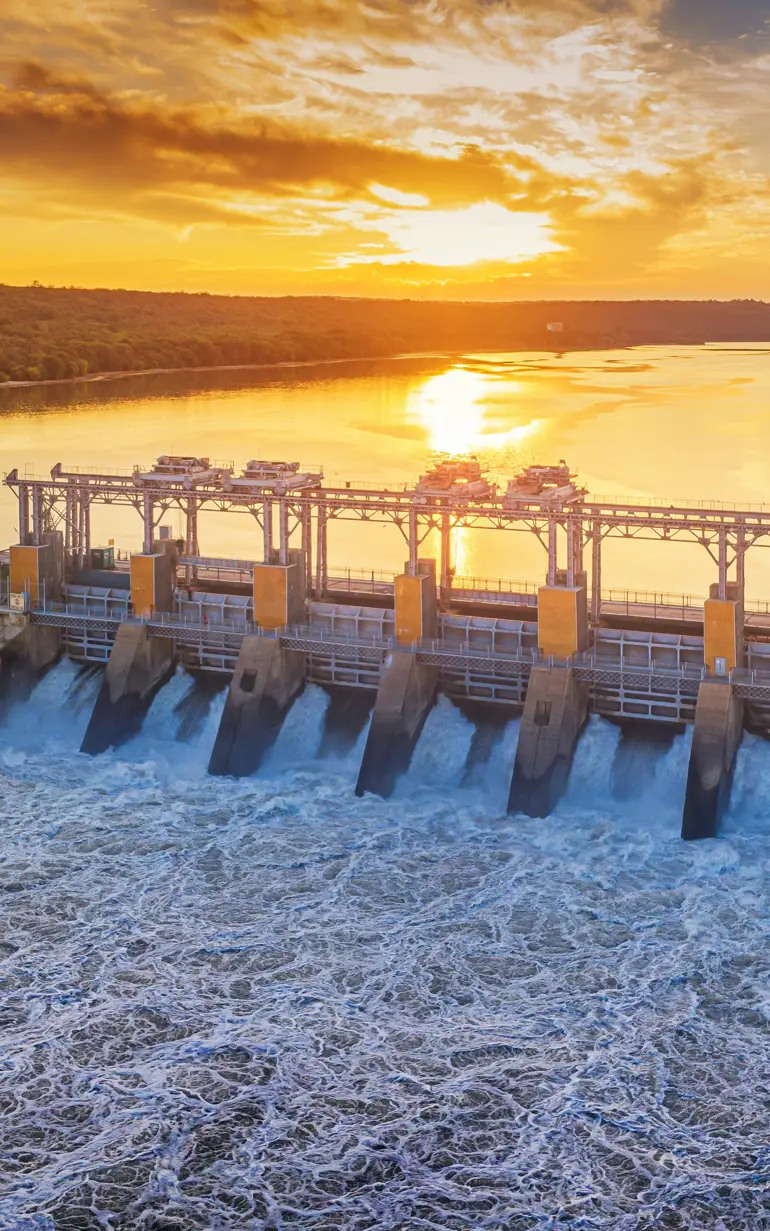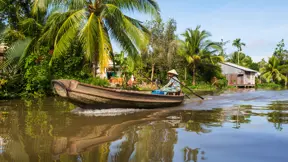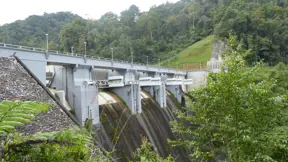
Assessing the impacts of hydropower projects on the Mekong Delta
Impact assessment of hydropower development on the Mekong River mainstream
Hydropower development plans along the Mekong River mainstream have raised significant concerns regarding their potential impacts on the Mekong Delta. To address these concerns, the Government of Vietnam, with participation from Cambodia and Laos, undertook the 'Study on the Impacts of Mainstream Hydropower on the Mekong River' (Mekong Delta Study or MDS) from 2013 to 2015. The study aimed to evaluate how the construction and operation of mainstream hydropower projects would alter the flow regime and the subsequent impacts on the natural environment, economic activities and social conditions in the Mekong Delta. As part of the study, DHI developed a comprehensive, integrated modelling system to understand and quantify the impacts of hydropower development on the Mekong Delta.
Challenge
Twelve hydropower projects have been proposed for the Mekong River mainstream in the Lower Mekong Basin, which covers the riparian areas of Thailand, Lao People’s Democratic Republic (Laos), Cambodia and Vietnam. The construction and operation of these projects could have significant and far-reaching socio-economic and environmental impacts across all four countries, particularly in the downstream regions.
Solution
The Government of Vietnam initiated the MDS to study the overall impact of the proposed hydropower cascade in the Mekong River mainstream on the natural, social and economic systems of the Mekong River Delta and the Tonle Sap basin. The study was intended to gather more information and build a suitable science-evidence base that will guide decision making on the Mekong mainstream hydropower development.
The Study's impact assessment follows international standards from organisations like the International Association for Impact Assessment, the United Nations Environment Programme and the World Bank. It uses the best available data and proven scientific methods to measure and understand the impacts.
Advanced hydrological, hydraulic, sediment transport, morphological and water quality models were used to simulate and assess the potential changes across the entire Lower Mekong Basin (LMB) that could result from constructing the proposed mainstream hydropower cascade.
DHI carried out the modelling work to forecast both spatial and temporal changes in river flows and water quality. The study employed a multi-scale modelling approach, integrating both large- and small-scale models with field surveys to capture both broad and detailed features of the Lower Mekong Basin. For each development scenario, the hydrological model produced multi-year time series of water flows, velocities, sediment concentrations and nutrient levels, while morphological changes were detailed through shifts in river profiles due to erosion and sediment deposition.
Results
Transparent, science-based tools, combined with available data and knowledge, have enabled a high-resolution impact assessment of the Mekong River and Delta, providing a better understanding of the cumulative effects on biodiversity, livelihoods and the economies of the lower Mekong countries.
Client:
Viet Nam National Mekong Committee (VNMC)
Location:
Vietnam
Related SDG(s):
SDG 6: Ensure availability and sustainable management of water and sanitation for all
SDG 7: Ensure access to affordable, reliable, sustainable and modern energy for all
Technology:
‘The Study's results serve as a foundation for ministries and agencies to develop measures for preventing, mitigating and adapting to impacts from mainstream cascade hydropower projects. They also support ongoing monitoring and assessment of upstream water resource development and provide a reference for Vietnam and other Committee members during consultations on hydropower proposals. In addition, DHI's findings have assisted the International Mekong River Commission in completing a Study on Sustainable Management and Development of the Mekong River Basin.’
Dr. Le Duc Trung, Director General
Office of Viet Nam National Mekong Committee
About our client
Viet Nam National Mekong Committee (VNMC) is an interdisciplinary agency responsible for assisting the Prime Minister in directing and managing inter-sectoral, inter-provincial and transboundary activities in order to effectively and sustainably manage and utilise water and related resources in the Mekong Basin, including Cuu Long (the Vietnam’s Mekong Delta parts) and SeSan-Srepok river basins.
You may also like
How can we help?
With our global network of offices, we make sure you get the right answers to your local needs. Tell us about your water challenges and we will get back to you.






